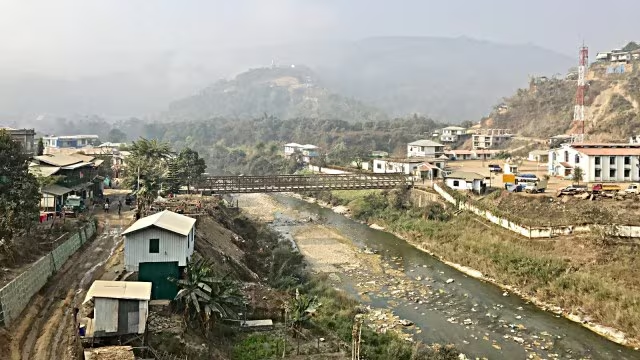New DelhiSeptember 4, 2025 08:38 PM IST
First published on: Sep 4, 2025 at 08:23 PM IST
Ahead of Prime Minister Narendra Modi’s likely visit to Manipur on September 13, the government on Thursday claimed to have arrived at an understanding with Kuki groups on free movement, but the Ministry of Home Affairs is still grappling with another hurdle. The United Naga Council (UNC) that wields significant influence in the Naga areas of the state has announced a “Trade Embargo” beginning September 8 over the raising of the India-Myanmar border fence and the suspension of the Free Movement Regime (FMR) agreement with Myanmar.
If not managed in time, it could mar the achievements of free movement since NH-2 passes through Senapati district, which is dominated by Nagas. Several key highways important for the transport of goods to Imphal Valley pass through Naga areas such as Senapati, Ukhrul, and Tamenglong.
The last thing the Manipur administration will want to deal with during the PM’s visit is a law-and-order situation in Naga areas and a paucity of essential items in the Valley. To manage the situation, the MHA has tasked the Intelligence Bureau’s (IB) former Additional Director, A K Mishra, with talking to the Nagas in the state. Mishra replaced R N Ravi as the negotiator on the Naga political issue and is also advisor to the government on the North East. Mishra and IB Joint Director Rajesh Kamble arrived at the understanding with the Kukis, having held talks with Kuki militant groups since June, it is learnt.
Sources said the Naga representatives in Manipur met with MHA representatives last month. They reiterated their demand to halt the construction of the India-Myanmar border fence in the Naga areas and the FMR, which was suspended in February 2024, be restored. However, after not receiving a positive response, the UNC on Wednesday announced a trade embargo, which sources said, could mean disruption of goods transport moving in and out of the Valley.
“The situation has to be managed in time. Nagas are also not easy to deal with. We cannot again have blockades, or worse, arson of goods transport on the highways. It will just open a new front,” said a senior officer in the security establishment.
The UNC, in its statement, said Nagas had communicated their “sentiments” to the MHA about the “unilateral abrogation of FMR and Imposed Border Fencing Construction amidst Naga homeland” and had also been holding agitations over the issue since January 2024.
“Yet, the indifferent attitude of the government demands a stringent agitation to register our rigid stance against the scrapping of FMR & Imposed Border Fencing construction for defending our homeland and identity and the inherent rights over our land,” read the statement. Therefore, it added, “we hereby announce that a ‘Trade Embargo’ shall be enforced in all the Naga areas with effect from midnight of September 8, 2025, until further notification”.
What was the Free Movement Regime?
The FMR, which allowed the free movement of people across the India-Myanmar border up to 16 km, has been a prickly issue for both Kukis and Nagas, along with the border fencing. Due to shared ethnicity and familial relations across the border, both tribal groups have opposed these moves of the government, with Kukis even likening it to the construction of the Berlin Wall.
However, Meiteis in the Valley have alleged that FMR and a non-fenced border led to illegal immigration and illicit drug trade. They have even blamed this for precipitating the ethnic strife that has torn the state in the past two years.
On February 8, 2024, Union Home Minister Amit Shah announced the suspension of FMR, saying, “The Ministry of Home Affairs (MHA) has decided that the Free Movement Regime (FMR) between India and Myanmar be scrapped to ensure the internal security of the country and to maintain the demographic structure of India’s North Eastern States bordering Myanmar. Since the Ministry of External Affairs is currently in the process of scrapping it, MHA has recommended the immediate suspension of the FMR.”


